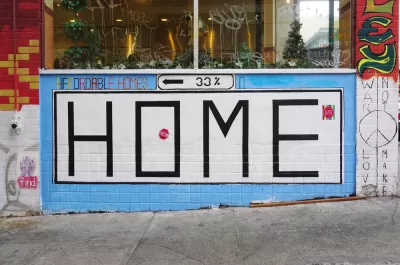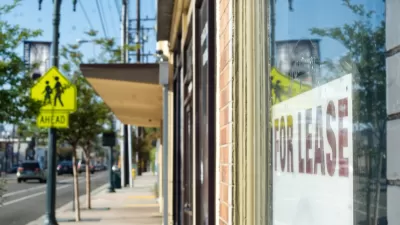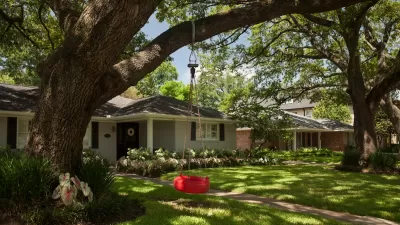As cities around the country consider legislation that will allow tenants a chance to buy their buildings, Washington, D.C., can provide lessons on what to do—and not to do.

In July, Julie Gilgoff reported on several municipalities that are exploring legislation that would give tenants the first right of purchase to preserve affordable housing. The proposed legislation is based on Washington, D.C.’s Tenant Opportunity to Purchase Act (TOPA), which was enacted in 1980. As manager of a TOPA program at a D.C.-based organization, I want to discuss factors that will facilitate or hinder the implementation of a program that allows tenants to cooperatively purchase their homes. In addition to purchasing a building, in most cases, the tenants will undertake a full development process, as most buildings purchased under TOPA in D.C. need moderate to substantial rehab.
From 2004 to 2019, Mi Casa Inc. has helped 19 tenant groups form limited-equity cooperatives to purchase and redevelop their buildings, permanently preserving over 500 units of affordable housing, most of which are affordable to households at or below 30 percent of the area median income (AMI). While TOPA can be an effective tool for affordable housing preservation and community control, the fact that it took 15 years of struggle to complete those 19 projects means that major challenges still inhibit its implementation.
Fernando Lemos, now the executive director of Mi Casa Inc., worked at Ministries United to Support Community Life Endeavors (MUSCLE) in the early days of TOPA. He ascribes the success of the early projects to the close working relationship between MUSCLE, University Legal Services (ULS), and the city’s Department of Housing and Community Development (DHCD). MUSCLE functioned almost as a development arm of the city. “We submitted a feasible plan which met city requirements,” Lemos says. “But the city acted as a collaborator and it was understood that they would fund the vast majority of projects and once they agreed to lend, they would be very flexible and adjust their terms in order for the projects to succeed.” ULS and other attorneys used limited-equity cooperatives to finance multi-family ownership. “Almost no one in the city was bankable and we needed a way to convert rental property to community ownership. This continues to be the case for many of our residents.”
Now, 40 years later, the city’s support for TOPA isn’t what it used to be. “That earlier sentiment, to ensure the long-term success of a project from purchase to renovation, is just not there,” Lemos says. While still supportive of TOPA, the district’s housing policy changed as the city started to gentrify in the 1990s. City leaders are still concerned about preserving affordable housing but funding now must compete with other priorities of the changing population. And since co-ops are home to more low-income residents, they require more investment.
The Challenges Unique to Purchasing as a Cooperative
Tenants purchasing their building through TOPA face the same challenge as all community-based affordable housing organizations: trying to meet the needs of low-income households in a market-driven industry. The first right of purchase takes a small step in leveling the playing field. However, tenant groups attempting to exercise this right face hurdles that are not easily foreseen in an analysis of proposed TOPA legislation in California and New York, including:
...
FULL STORY: Lessons from 20 Years of Enabling Tenants to Buy Their Buildings

Alabama: Trump Terminates Settlements for Black Communities Harmed By Raw Sewage
Trump deemed the landmark civil rights agreement “illegal DEI and environmental justice policy.”

Planetizen Federal Action Tracker
A weekly monitor of how Trump’s orders and actions are impacting planners and planning in America.

The 120 Year Old Tiny Home Villages That Sheltered San Francisco’s Earthquake Refugees
More than a century ago, San Francisco mobilized to house thousands of residents displaced by the 1906 earthquake. Could their strategy offer a model for the present?

Ken Jennings Launches Transit Web Series
The Jeopardy champ wants you to ride public transit.

BLM To Rescind Public Lands Rule
The change will downgrade conservation, once again putting federal land at risk for mining and other extractive uses.

Indy Neighborhood Group Builds Temporary Multi-Use Path
Community members, aided in part by funding from the city, repurposed a vehicle lane to create a protected bike and pedestrian path for the summer season.
Urban Design for Planners 1: Software Tools
This six-course series explores essential urban design concepts using open source software and equips planners with the tools they need to participate fully in the urban design process.
Planning for Universal Design
Learn the tools for implementing Universal Design in planning regulations.
Clanton & Associates, Inc.
Jessamine County Fiscal Court
Institute for Housing and Urban Development Studies (IHS)
City of Grandview
Harvard GSD Executive Education
Toledo-Lucas County Plan Commissions
Salt Lake City
NYU Wagner Graduate School of Public Service





























